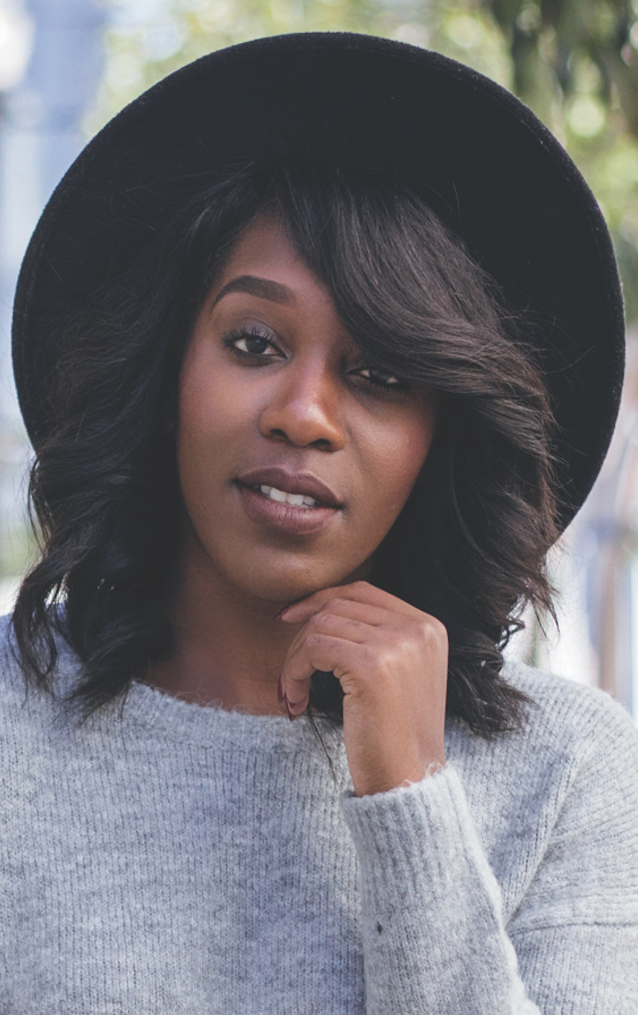Today’s entry kicks off our blog series on Mental Health. As BIPOC communities, we carry so much personal, communal, generational, and second hand trauma as we seek our collective flourishing and choose to work together so that our communities can thrive. We carry a heavy burden Jesus never intended for us to carry alone. Let’s learn from one another so that we can live a lifestyle of justice that includes our wholeness. Chasing Justice will be guiding our community through the topics surrounding mental health with the following weekly resources:
- Monday Instagram Lives with BIPOC Mental Health professionals.
- Free Justice Masterclass on Mental Health on Feb. 24th.
- Instagram posts for sharing with friends.
- Guest blogs by BIPOC authors who will guide us in their mental health journeys.
Welcome our first guest contributor, Dr. Peace Amadi.
The beauty—yes, beauty—of anxiety is that there is wisdom in it. Anxiety itself counsels and
directs. It points back to our families and how we may have learned our fears and anxiety. It
points back to our traumas and unhealed wounds. It points back to losses we still need to deal
with, whether it be lost life, lost love, or lost time. It points back to values that may have shifted
for the culture that just won’t work for us. And how could they? These values aren’t ones that
God made important for our lives.
Anxiety bubbles at the surface with a message from deep down. We should remain curious
about it. We should listen. Here are at least three questions you can ask yourself as you listen
to your anxiety.
Are you in danger? Because fear and anxiety are ultimately supposed to protect us, we most
certainly should take the time to assess if we’re in any real danger. If your anxiety suggests that
you might be, you must pay attention and take action. I think about the case of someone who
just left a relationship characterized by poor boundaries, intimidation, and other signs of abuse.
This person may be anxious that their ex could return to their life unexpectedly and somehow
hurt them. There’s a legitimate threat here that should be worked out with a therapist who
specializes in partner violence, and possibly the legal system.
The same goes for danger that isn’t physical but rather emotional or psychological. Maybe there
are friends in your life who are causing more harm than good. Maybe your significant
other’s drinking is getting a little bit out of control. Maybe the class you’re about to do a
presentation for is full of sophisticated bullies and you would prefer not to be terrorized just to
get a grade. All of these scenarios warrant a bit of your attention, a ton of emotional support,
and a reasonable plan for how you want to move forward.
What are my current thoughts? Anxiety typically points to some specific worries. Oftentimes,
those worries take the form of “what if?”
- What if they don’t like me?
- What if I put myself out there and they reject me?
- What if this ruins our friendship?
- What if she doesn’t forgive me?
- What if I fail at this and have to start over again?
- What if this doesn’t work out for me?
- What if I take my shot and miss?
- What if, what if, what if?
When anxiety points back to a problem with a bunch of “what ifs,” try answering back with the
equally powerful question, “So what?” This is a method I picked up from anxiety expert
psychologist Dr. Angela Neal-Barnett, who shared about it in her book Soothe Your Nerves. “So
what” questioning helps anxious individuals realize that what they are fearing could happen is
far worse than what might actually happen. Look at some examples for how this works:
- What if they don’t like me? (So what?)
- What if I put myself out there and they reject me? (So what?)
- What if this strains our friendship? (So what?)
- What if I fail at this and have to start over again? (So what?)
See, once “what ifs” are met with “so whats,” worries begin to shrink in size and significance.
Perhaps what’s most helpful is the fact that the solutions to our worries become more clear,
focused, and executable.
For example, if you “so what” your fear about failing and having to start over again, you could
work on a plan of action should that actually happen. You would likely also gain some
confidence that if this were the outcome, you would survive it.
Is there something unresolved in me? Anxiety acts as a defense mechanism. It often works
to protect us from deeper, harder, more uncomfortable emotions until we have the time, space,
and support to really deal with them. That being said, your growing anxiety may be a sign that
it’s time to finally dig in. As you reflect on your recent history, what other feelings keep coming
up for you? Is it sadness, bitterness, frustration, shame? Where might these feelings be coming
from? Does any current frustration resemble frustration from your past? Are core beliefs being
triggered?
The wisdom of your anxiety may allude to the fact that anxiety isn’t your problem at all. It may
be old memories, long-standing insecurities, or deep doubts. These types of issues are best
worked out in therapy.
It behooves us to remain curious about our anxiety, to listen to it, and to see the path it might
want to take us down. However, sometimes anxiety rises, and we just need to relieve it.
Sometimes we just need something to get us through the day. Research emphatically supports
the use of deep breathing (sometimes called diaphragmatic breathing, belly breathing, or paced
breathing), imagery, and meditation to relieve rising levels of anxiety. I’ve also found it
comforting to learn that faithful Christians have practiced things like deep breathing and breath
prayer, contemplative prayer, and meditation for centuries!
Deep breathing. Deep breathing is one of the most powerful things you can do for your anxious
body. When you slow down and deepen your breath, you send a message to your brain to calm
down and relax. You tap into your sympathetic nervous system—the system that controls your
fight-or-flight response, which your anxiety reveals has been triggered—and you signal to this
system that it’s okay to relax. Your brain copies this message and signals to the rest of your
body that it can chill. Nine times out of ten, it will.
Imagery. Imagery (sometimes called guided imagery) involves the use of your imagination.
Let’s hope things haven’t gotten that bad and we all still have one of those! The idea is that
during an anxiety rise, you turn inward and visualize that you are in a much more peaceful
place—a quiet beach with gentle waves, a warm fireplace, your grandma’s sweet-smelling
kitchen in the morning. It doesn’t matter what you choose. What matters is that it’s a place you
can easily see, hear, and smell, and that it’s a place in real life that has made you feel safe and
calm.
Meditation. Despite the complicated definitions that exist for it, meditation at its core is pure and
simple. Psychology Today defines meditation as “the practice of turning one’s attention to a
single point of reference. It can involve focusing on the breath, on bodily sensations, or on a
word or phrase, known as a mantra. [It is] pivoting away from distracting thoughts and focusing
on the present moment.”
When you choose one point of focus and shift your attention from everything else going on
around you to that thing, you are meditating. Your meditation may not be very
transformative—you could have chosen to meditate on a pencil for all I know—but if you are
focused singly on the pencil for any number of minutes, in any place you choose, you are
meditating.
May I suggest to you that this is exactly what the Word inspires us
to do. Check out these Scriptures:
My eyes stay open through the watches of the night, that I may meditate on your
promises. (Psalm 119:148)
You will keep in perfect peace
Those whose minds are steadfast, because they trust in you. (Isaiah 26:3)
Be still, and know that I am God;
I will be exalted among the nations,
I will be exalted in the earth. (Psalm 46:10)
Finally, brothers and sisters, whatever is true, whatever is noble, whatever is right,
whatever is pure, whatever is lovely, whatever is admirable—if anything is excellent or
praiseworthy—think about such things. (Philippians 4:8)
Scripture encourages us to turn our attention to a single focus in our anxiety, whether it be God,
his promises, or anything that is true, pure, and lovely. This is meditation.
I encourage you to develop your own anxiety regimen or meditation practice that you can fall
back on. One you can use alone in your room or together with your church small group or circle
of friends. Do more research if you need to (there are tons of books, articles, and practice
exercises out there), but keep it pure, keep it simple, and make it work for you. No matter how
hard it gets, keep at least one thing in mind: you’re not in this alone.
Adapted from Why Do I Feel Like This by Peace Amadi. Copyright (c) 2021 by Chynyere Peace
Amadi. Published by InterVarsity Press, Downers Grove, IL. www.ivpress.com

Peace Amadi is a psychology professor, speaker, author of Why Do I Feel Like This?, content creator, and host. She holds a BA in psychology from UCLA and a masters and doctorate in psychology from Azusa Pacific University. As a woman of faith, she uses her various platforms to bridge the gap between mental health and faith for the purposes of engaging a deeper healing journey. As a woman of Nigerian descent, she calls for reflection on how healing is affected by culture and family.
The views and opinions expressed on the Chasing Justice Blog are those of the authors and do not necessarily reflect the official policy or position of Chasing Justice. Any content provided by our bloggers or authors are of their opinion and are not intended to malign any religion, ethnic group, club, organization, company, individual or anyone or anything.








